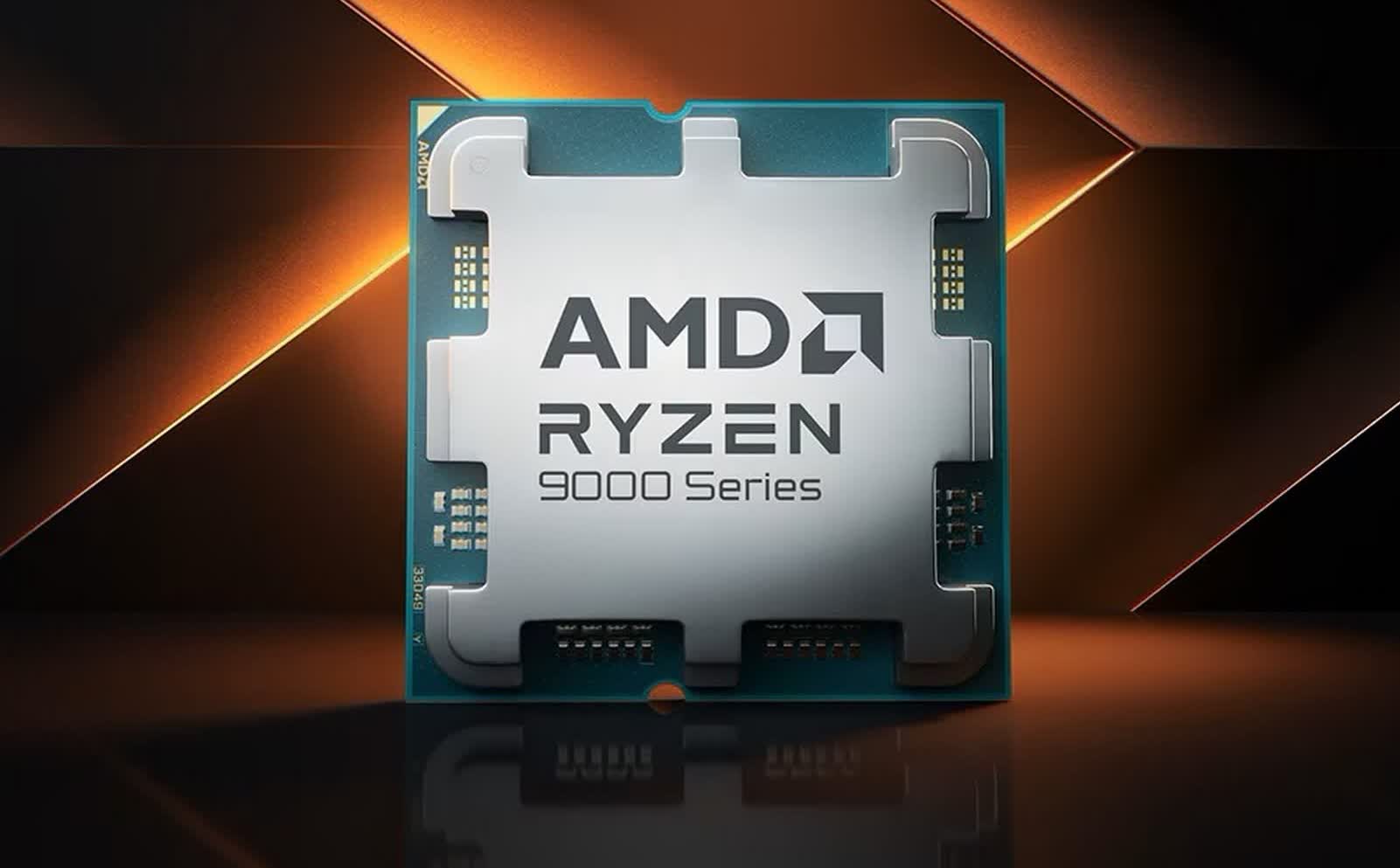Rumor mill: AMD officially announced its Ryzen 9000 desktop CPUs at Computex 2024 in June. The upcoming processors will implement major changes, and a slew of leaks have already revealed some of their features and specifications. A new report now suggests that the flagship Zen 5 CPU, the Ryzen 9 9950X, may have the same maximum frequency as its Zen 4 predecessor.
Anandtech forum member igor_kavinski claims the 9950X could have a 5.85 GHz FMAX, which is the same as the maximum frequency for the Ryzen 9 7950X. The two chips also share a few other features, such as a 5.7 GHz peak boost clock and a 170W TDP that can exceed 200W with PBO.
The Ryzen 9 9950X was also tested in Blender 3.3, and the results suggest its performance is similar to that of the Core i9-12900K. Notably, the 9950X achieved these high scores even with its default PPT set to just 60W instead of the standard 170W.
Despite its apparent similarities with the 7950X, the 9950X is expected to offer several upgrades over its predecessor. Namely, it is tipped to run cooler and consume less power than the Zen 4 chip while delivering faster performance across most workloads.
Meanwhile, another Zen 5 leak suggests the Ryzen 9 9900X could outperform the Intel Core i9-14900KS in single-core benchmarks and nearly match the Core i9-14900K in multi-core tests. In Geekbench 6.2.1, the 9900X achieved a single-core score of 3,401 points and a multi-core score of 19,756 points.
While the single-core score surpassed the 3,189 points recorded by Intel's current flagship desktop chip, the multi-core score is only slightly below the 20,881 points achieved by the Core i9-14900K.
The Zen 5-based Ryzen 9000 "Granite Ridge" desktop CPUs will be compatible with the AM5 socket and will support DDR5 and PCIe 5.0 technologies. The Zen 5 core architecture is said to be a major upgrade from Zen 4, with AMD claiming a 16 percent IPC improvement based on a geometric mean. Those waiting to upgrade to the new lineup may have even more good news, as early listings suggest they could be priced lower than their Zen 4 predecessors.

